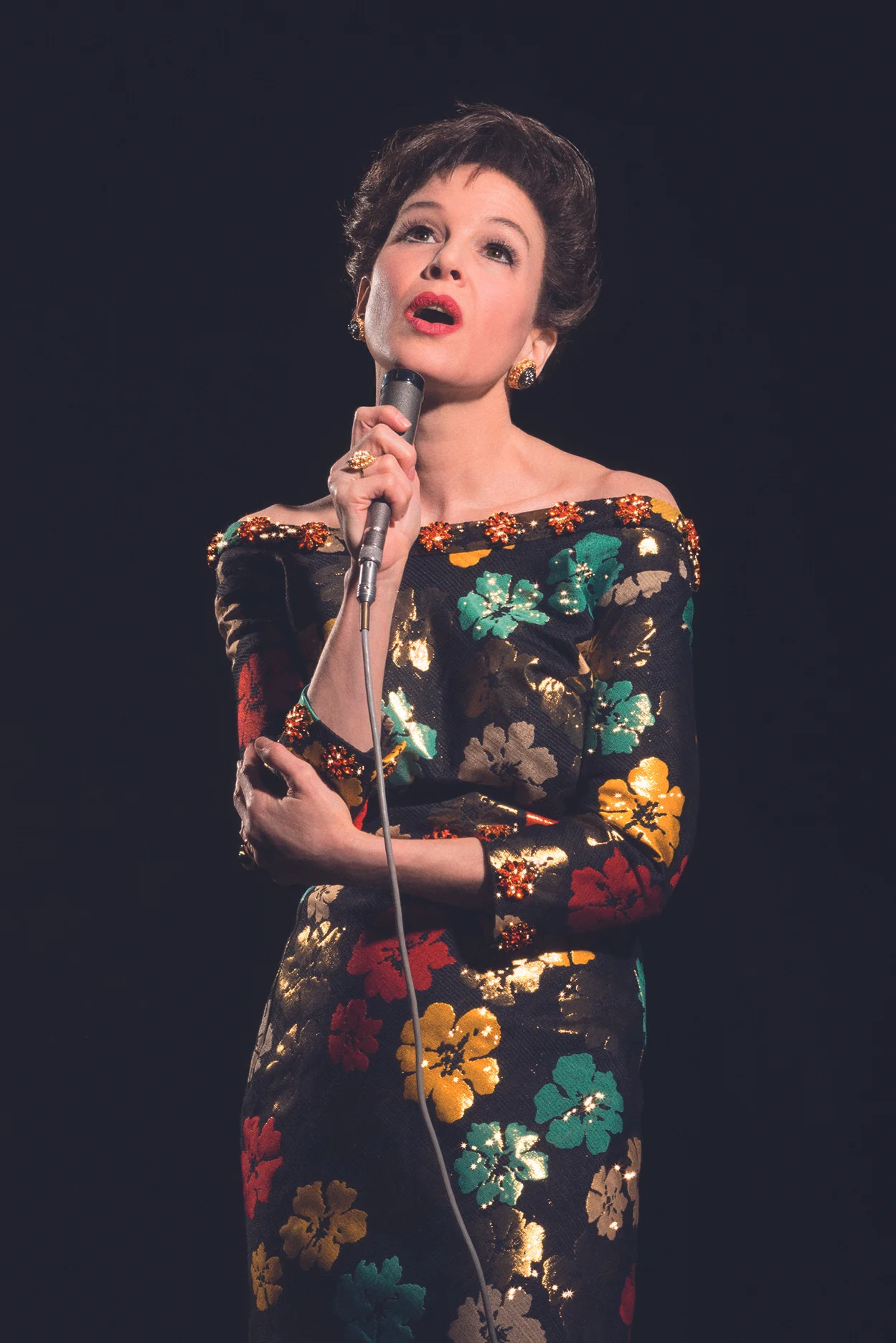Judy: Renee Zellweger's incandescent Garland reduces the rest of the cast to mere bystanders
By Jim Slotek
Rating: B-plus
There wasn’t much commonly shared opinion at the end of the Toronto International Film Festival this year. But even the contrarians had to admit Renée Zellweger’s performance as Judy Garland in Judy had award-season written all over it.
The only point of contention was, is Judy a good movie? Does the fact that a performance burns so brightly as to reduce the rest of the cast to bystanders, reduce the end result?
Renee Zellweger, owning the stage in Judy.
My feeling is that Rupert Goold’s Judy is as good as it needs to be to stand as a framework for Zellweger’s incandescent performance. Parts of the plot are A-to-B, a lot is unsubtle and a climactic scene involving her most famous song is pure-Hollywood schmaltz.
But the worst of Judy is worth the price of admission for the one bravura performance. Goold and writers Tom Edge and Peter Quilter wisely take their time before showing off the results of Zellweger’s vocal homework. It is nearly 40 minutes before we hear Judy Garland sing. That gives us plenty of time to familiarize ourselves with the complicated mix of insecurity, pluck and pills that marked her life since childhood.
The Hobson’s Choice that created “Judy Garland” is summed up in one of a handful of flashback scenes where a porcine and vaguely sinister Louis B. Mayer (Richard Cordery) bends her will, with perverse you-don’t-really-want-a-normal-life pep-talks (punctuating by the pep-pills and sleep aids that kept her and her shallow platonic boyfriend Mickey Rooney entertaining Middle America).
Maybe it’s because she’s one of the few people in the movie who doesn’t have to act opposite the “older” Judy, but Darci Shaw acquits herself well as the teenage Garland.
The meat of the movie finds Judy arriving in L.A. essentially homeless, unable to afford a hotel because of the straits left to her by her ex-husband Sid Luft (Rufus Sewell). Out of desperation, she accepts an invitation to play an extended series of dates in London, England, leaving her younger children with Luft.
Interestingly, her interactions with her younger daughter Lorna Luft (Bella Ramsey) offer the closest thing to a character arc anyone else in the movie gets. Lorna begins as her mother’s worried surrogate parent. Later, her attitude evolves to a demand for a normal life with her father - normality being, ironically, the very thing her mother craved herself.
By contrast, the more famous daughter, Liza Minnelli, (Gemma-Leah Devereux) is represented in a cameo at a party at her beach-house, where mom meets Mickey Deans (Finn Wittrock), the younger man and huckster who would become Judy’s last husband.
The movie moves to England, where Judy, oddly enough, seems to spend very little time thinking about her children. She needs to devote 100% of her energy to the task of staying sober – or at least ambulatory enough to get through a show. This does not always happen, to the worry and chagrin of her British “minder” Rosalyn (Jessie Buckley) and the theatre manager (Michael Gambon). And the passionate effort Zellweger throws into these onstage car crashes is an important component of the performance.
In one of the most didactic bits of narrative shorthand, a pair of older gay fans who invite her for badly-cooked homemade scrambled eggs, are injected into the plot to embody Garland’s gay icon status.
But it’s Zellweger’s embodiment of Garland’s power and vulnerability onstage that fuels the performance. She may not have the vocal wattage of the real deal, but she communicates it well enough to get the point across powerfully.
Judy. Directed by Rupert Goold. Written by Tom Edge and Peter Quilter. Starring Renee Zellweger, Jessie Buckley and Finn Wittrock. Opens wide, Friday, September 27.

